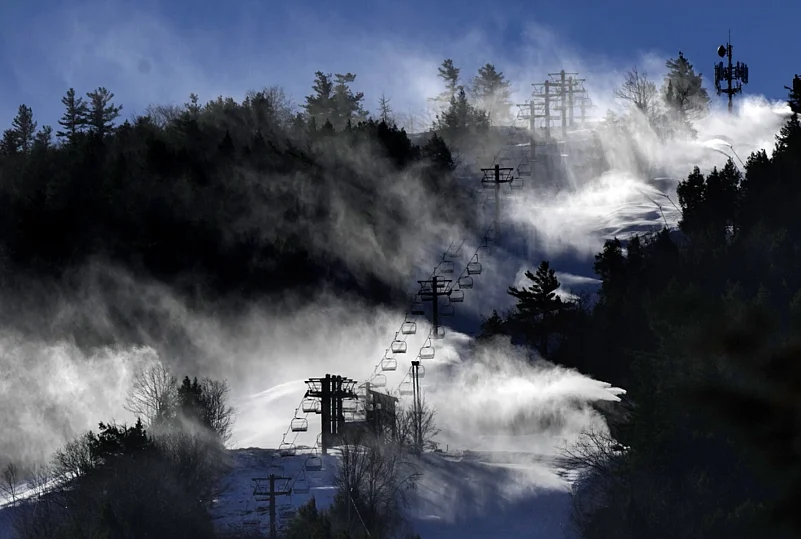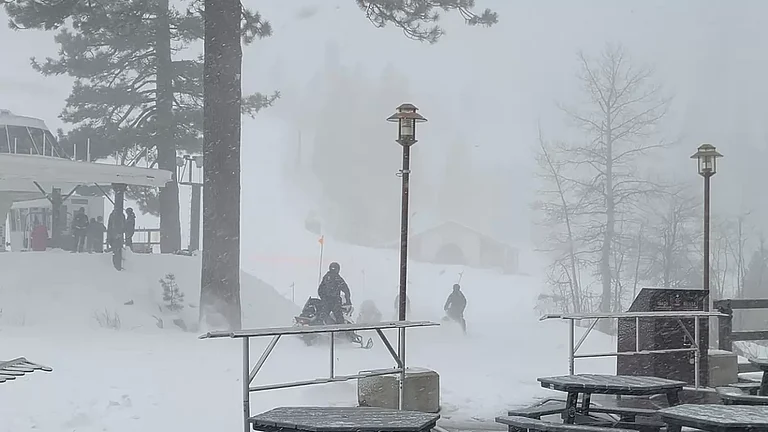A study conducted by scientists at the University of Waterloo has shed light on the staggering economic toll climate change is exacting on the US ski industry. The research, published in Current Issues in Tourism, paints a dire picture of the industry's future, with potential annual losses soaring to around $1 billion by the 2050s if emissions aren't significantly reduced.
US Ski Industry Faces Billions In Losses Due To Climate Change
US ski areas lost $5 billion from 2000 to 2019 as a result of human-caused climate change and could lose around $1 billion annually in the 2050s depending on how much emissions are reduced, a new study found.

According to the study, US ski areas have already incurred a staggering $5 billion in losses from 2000 to 2019 due to human-caused climate change. This year, warm weather wreaked havoc on winter recreation across North America and Europe, leading to the cancellation of events like a 250-mile dog sled race in Maine and the opening of golf courses in Minnesota.

Daniel Scott, one of the study's co-authors, highlighted the immediate impact of climate change on winter sports: "It's a now problem, not a future-looking problem."
The study modeled ski seasons from 2000 to 2019 in major US markets without climate change, comparing them to seasons from 1960 to 1979, before significant warming trends emerged. It found that the average ski season between 2000 and 2019 was shorter by 5.5 to 7.1 days, even with snowmaking to compensate for less natural snow.
Under optimistic emissions reduction scenarios, the future of the US ski industry faces shortened seasons by 14 to 33 days in the 2050s, despite snowmaking efforts. A high-emissions scenario could double these losses.
Auden Schendler, from Aspen One, emphasized the urgent need for action: "The future of the ski industry, if that's something you care about, is really in our hands."
The economic losses calculated by the researchers include increased operating costs for snowmaking and lost skier revenue. However, they note that the estimates may be conservative, as they don't account for additional losses in winter sport communities.
The study also raises questions about the long-term viability of snowmaking as a solution. David Robinson, a Rutgers University researcher, noted that while snowmaking can mitigate some effects of climate change, it has limitations as the planet continues to warm.
As the ski industry grapples with these challenges, researchers emphasize the importance of understanding skier behavior in response to declining snow conditions. Julienne Stroeve, a senior scientist at the National Snow and Ice Data Center, highlighted the need to investigate how skiers might adapt if poor snow conditions become more frequent.
The findings underscore the critical role of emissions reduction in safeguarding the future of the ski industry. With climate change already taking a heavy toll, the study serves as a clarion call for immediate action to mitigate its devastating effects on winter recreation.
- Previous Story
 US Elections 2024: Tim Walz, JD Vance To Go Head-To-Head In VP Debate | Key Issues To Watch Out For
US Elections 2024: Tim Walz, JD Vance To Go Head-To-Head In VP Debate | Key Issues To Watch Out For - Next Story

























